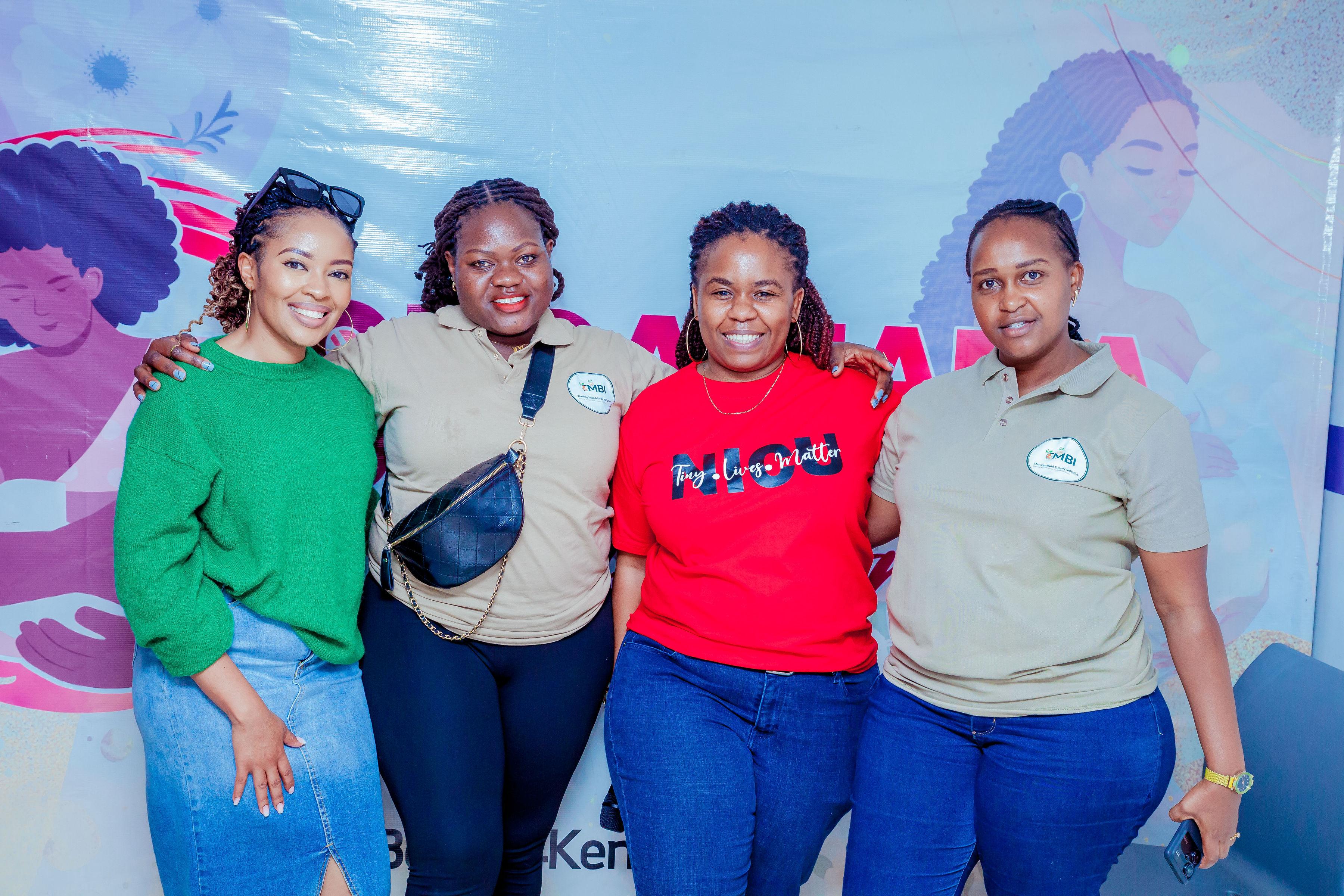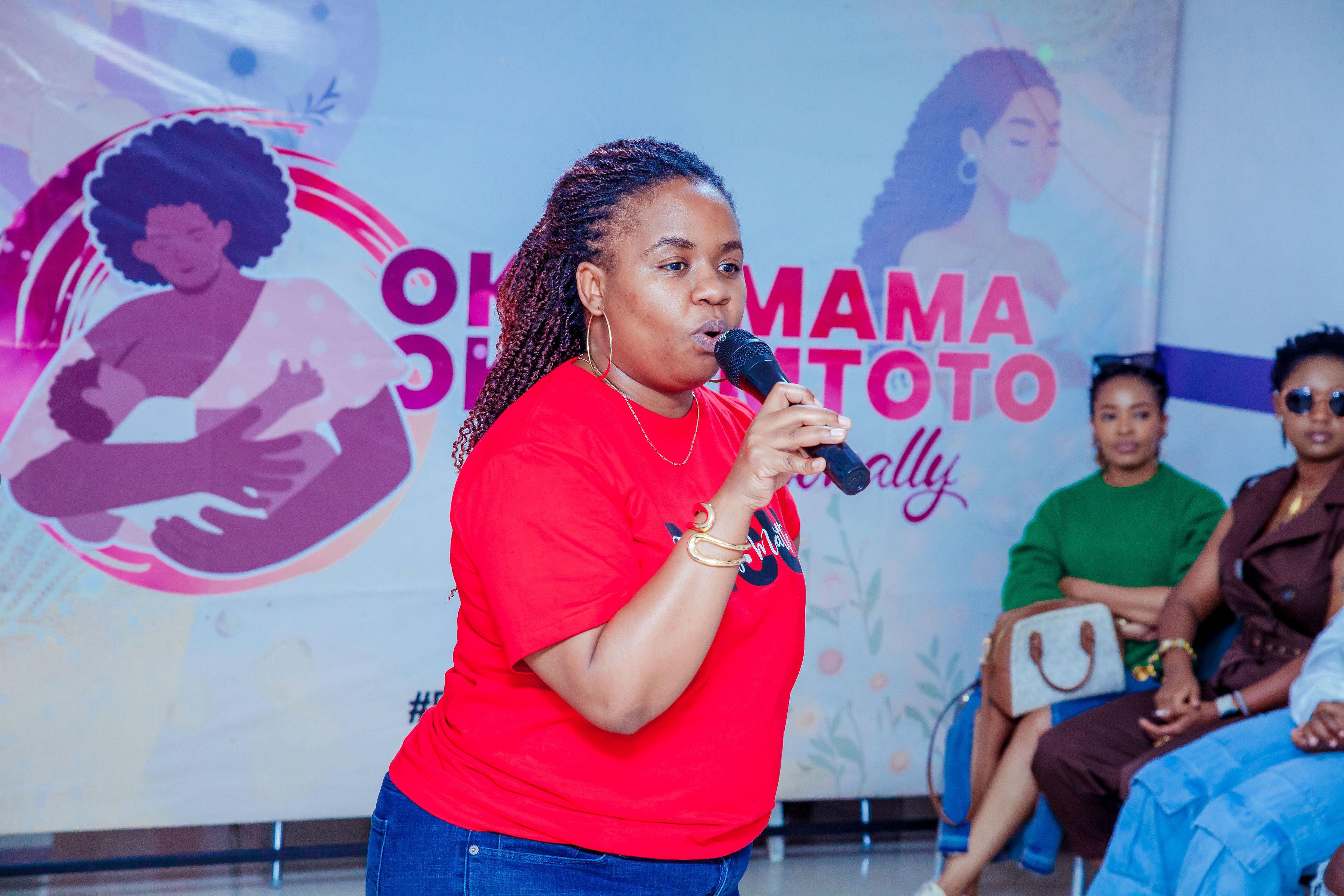 Kambua (first from left) and Ashley (in a red top) at a recent community event organized by #Better4Kenya for a session on maternal health under the Okoa Mama Okoa Mtoto, Take It Personally campaign. /HANDOUT
Kambua (first from left) and Ashley (in a red top) at a recent community event organized by #Better4Kenya for a session on maternal health under the Okoa Mama Okoa Mtoto, Take It Personally campaign. /HANDOUTAccording to the World Health Organization, more tha 5,000 women in Kenya die each year from preventable maternal causes. Most of these deaths result from complications that the world already knows how to treat: postpartum hemorrhage, preeclampsia, infections, and unsafe deliveries.
These are not just numbers. They are names, faces, and futures, mothers, daughters, sisters, friends. When a mother dies, an entire community loses its heartbeat.
It’s time to recognise that maternal health is not just a medical concern; it is a justice issue. It speaks to whether women’s lives are valued, whether families are protected, and whether our systems truly serve those most in need. Because when women die giving life, something in our collective humanity breaks.
 Kambua at a recent community event organized by #Better4Kenya for a session on maternal health under the Okoa Mama Okoa Mtoto, Take It Personally campaign. /HANDOUT
Kambua at a recent community event organized by #Better4Kenya for a session on maternal health under the Okoa Mama Okoa Mtoto, Take It Personally campaign. /HANDOUTAt the center of this web of care are communities themselves, the people who notice when a mother is struggling, who rally around her with information, support, and solidarity. In both rural villages and urban cities, community structures often fill the gaps left by overstretched systems.
When neighbours check in, when local leaders mobilize, when youth and women’s groups organise blood drives or awareness campaigns, when midwives step in-they create a safety net no institution can replace. Because even the best policies cannot save a mother if the referral ambulance has no fuel, if blood banks are empty, or if pregnancy is seen as a private struggle rather than a shared responsibility. That is why community matters. It connects the dots.
It transforms concern into action. It ensures that mothers do not die because transport failed, because stigma silenced them, or because systems forgot them. We have seen glimpses of what happens when communities rally together, when conversations about safe motherhood move from hospital corridors to homes, churches, radio shows, and market stalls.
When men become advocates. When young people speak up. When leaders prioritize maternal health in budgets, not just speeches. Change begins to take root. Empowering women and their communities is at the core of that change. When women are informed and equipped with the right knowledge, they can take charge of their health and make timely decisions.
 Ashley Muteti, Founder & Executive Director Zuri Nzilani Foundation Trust/HANDOUT
Ashley Muteti, Founder & Executive Director Zuri Nzilani Foundation Trust/HANDOUTStill, this is not the time to grow weary. Kenya’s maternal mortality rate remains one of the highest in the region, an estimated 355 deaths per 100,000 live births, far above the global target of fewer than 70 by 2030. Each number represents a story that ended too soon. Each statistic is a reminder that our silence costs lives.
The good news is that solutions already exist, and they start with us. Communities can organize blood drives, demand accountability for county health budgets, support expectant mothers with transport and care, and celebrate the health workers who hold life in their hands daily.
Every small act of solidarity ripples outward. Because maternal health is not just a woman’s issue, it is a societal mirror. It reflects who we are and what we value.
The measure of a community is not found in its wealth, but in how it protects its most vulnerable. If we nurture communities where safe births are the norm, support systems are local, and no woman is left behind, we do more than improve health outcomes, we build a nation grounded in care, dignity, and shared responsibility
















